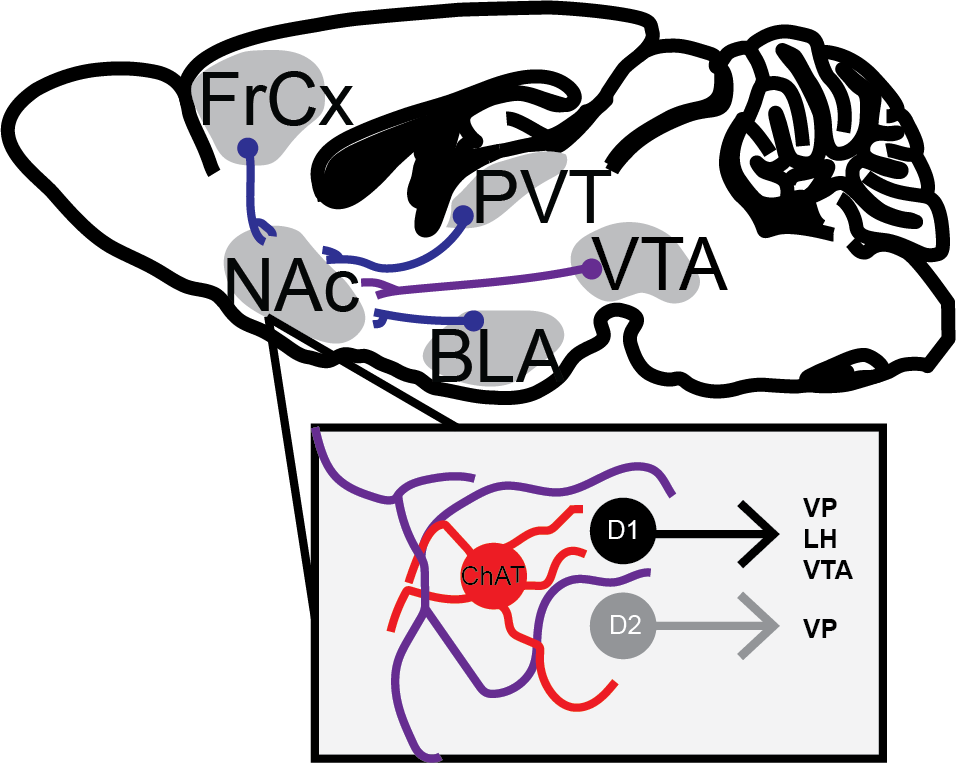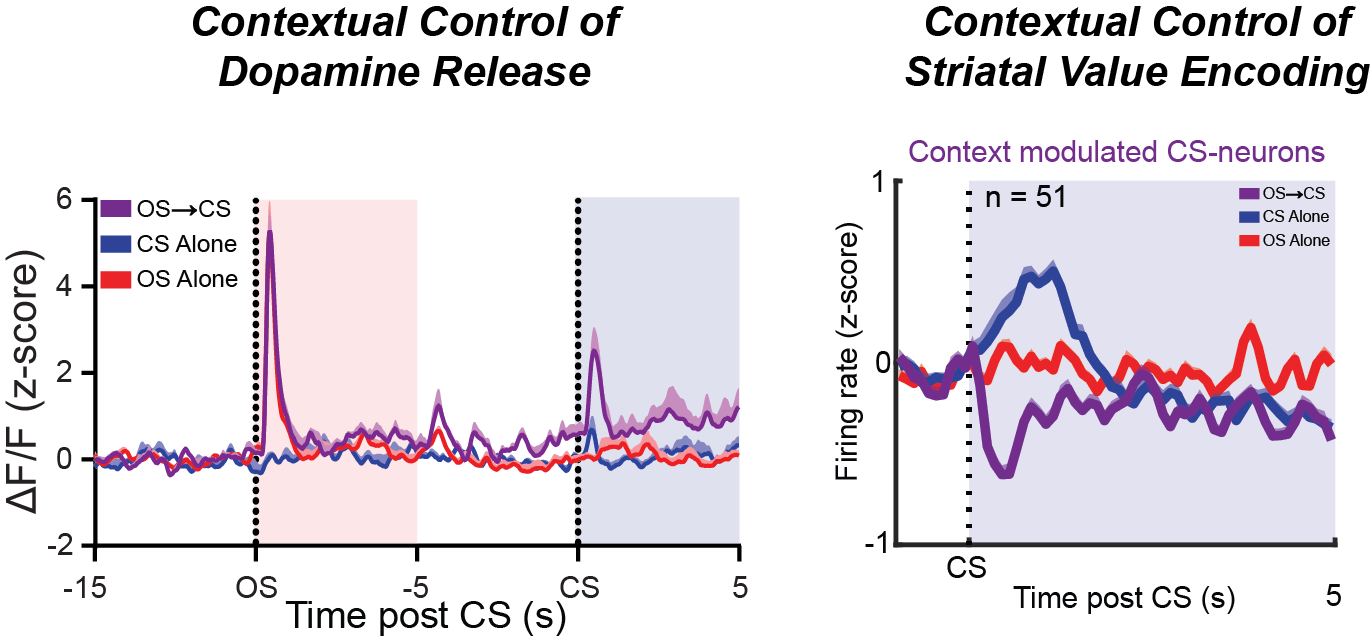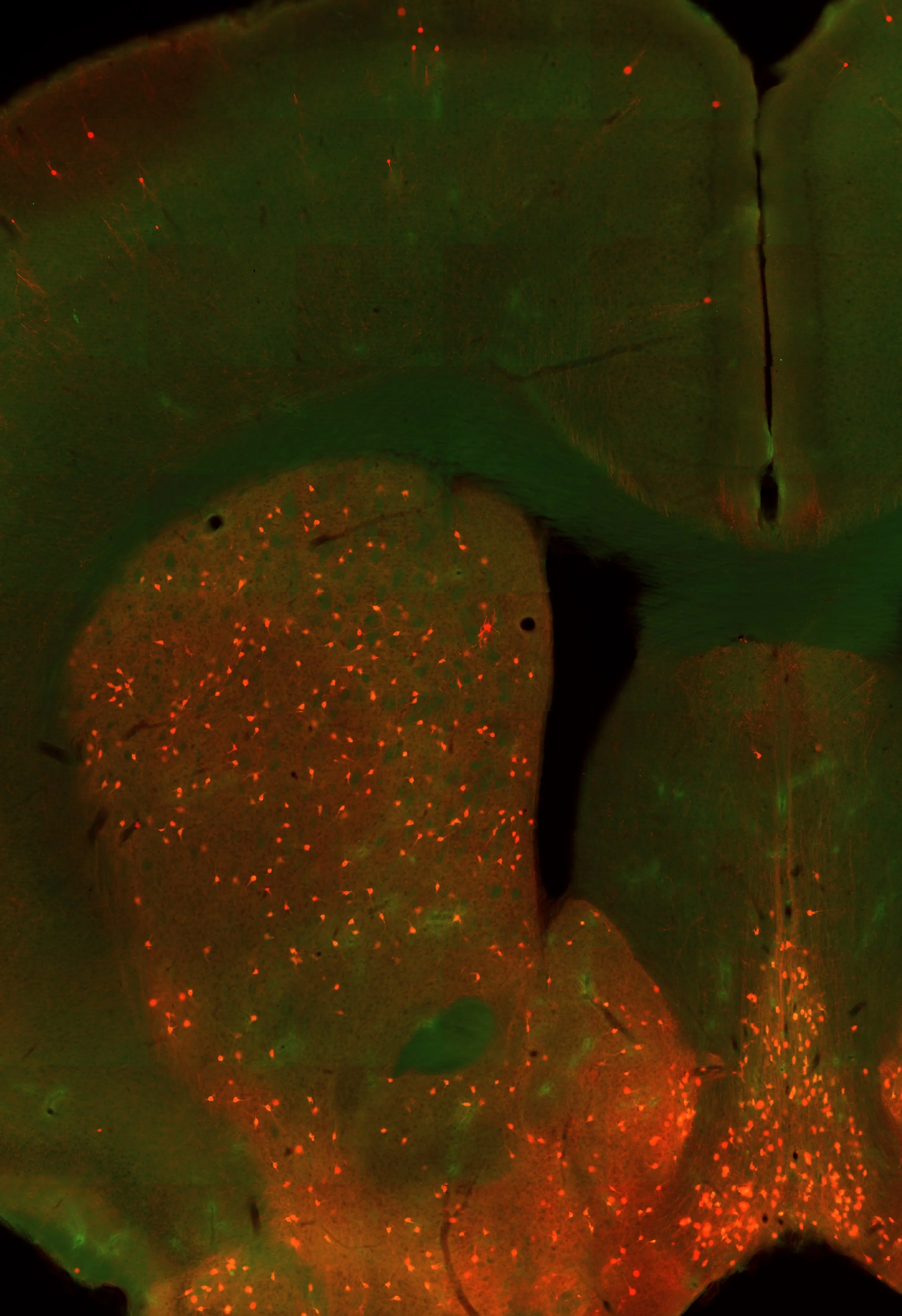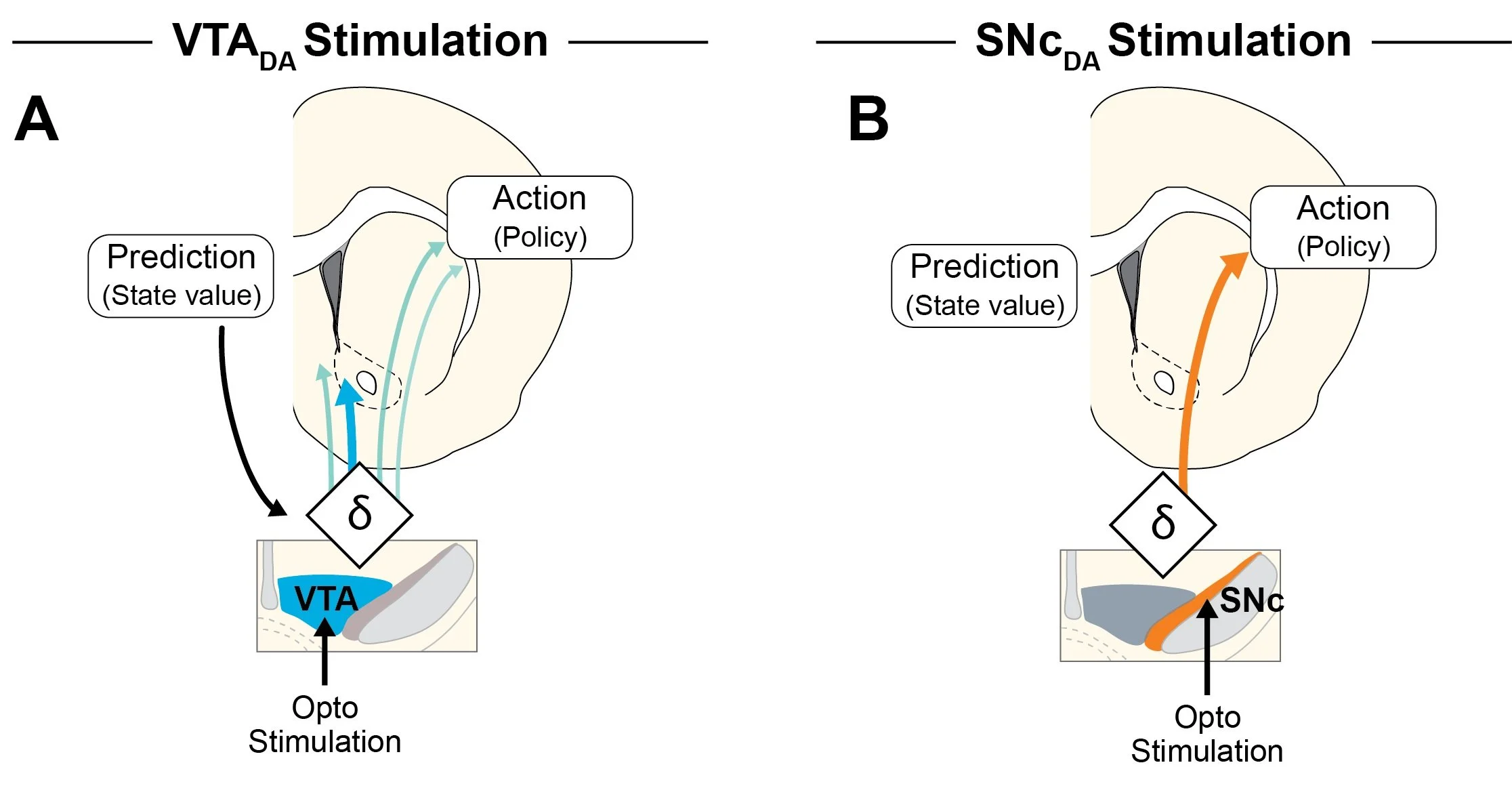Neurobiology of context-specific motivation
The central goal of our research is to understand the neural circuits that enable contexts to flexibly control behavior. We are specifically interested in how such circuits prompt behavior towards rewards and away from punishment. A particular interest is resolving how these processes are disrupted in psychiatric illness, such as in substance use disorders, or as a consequence of maladaptive life experiences.
Mechanisms of contextual regulation of behavior
We have shown that inputs converging on the nucleus accumbens are critical for the rapid modulation of motivation. We are interested in exploring how defined inputs and outputs of the nucleus accumbens are involved in this process. We are making use of multisite electrophysiology, targeted optogenetic manipulations, and novel behavioral preparations to address the ability of this region to flexibly drive behavior.
Acetylcholine contributions to cue-directed motivation
We are interested in understanding the function of the neuromodulator acetylcholine in motivation. We have an active interest in contrasting the function of acetylcholine within the striatum with its actions in other limbic brain structures like the amygdala and frontal cortex. We are taking advantage of transgenic rats in combination with fiber photometric recording of acetylcholine release and optogenetic manipulations to ascertain the causal role of acetylcholine release in motivated behavior.
Relating neural heterogeneity to behavioral processes
A primary focus of the lab is to understand the function of different striatal regions in contributing to motivated behavior. We are particularly interested in how this homogeneously composed brain structure performs heterogeneous functions, with regions only a millimeter apart having disparate functions. For instance, we focus on how neuromodulators like dopamine or acetylcholine help construct and shape such heterogeneity.



